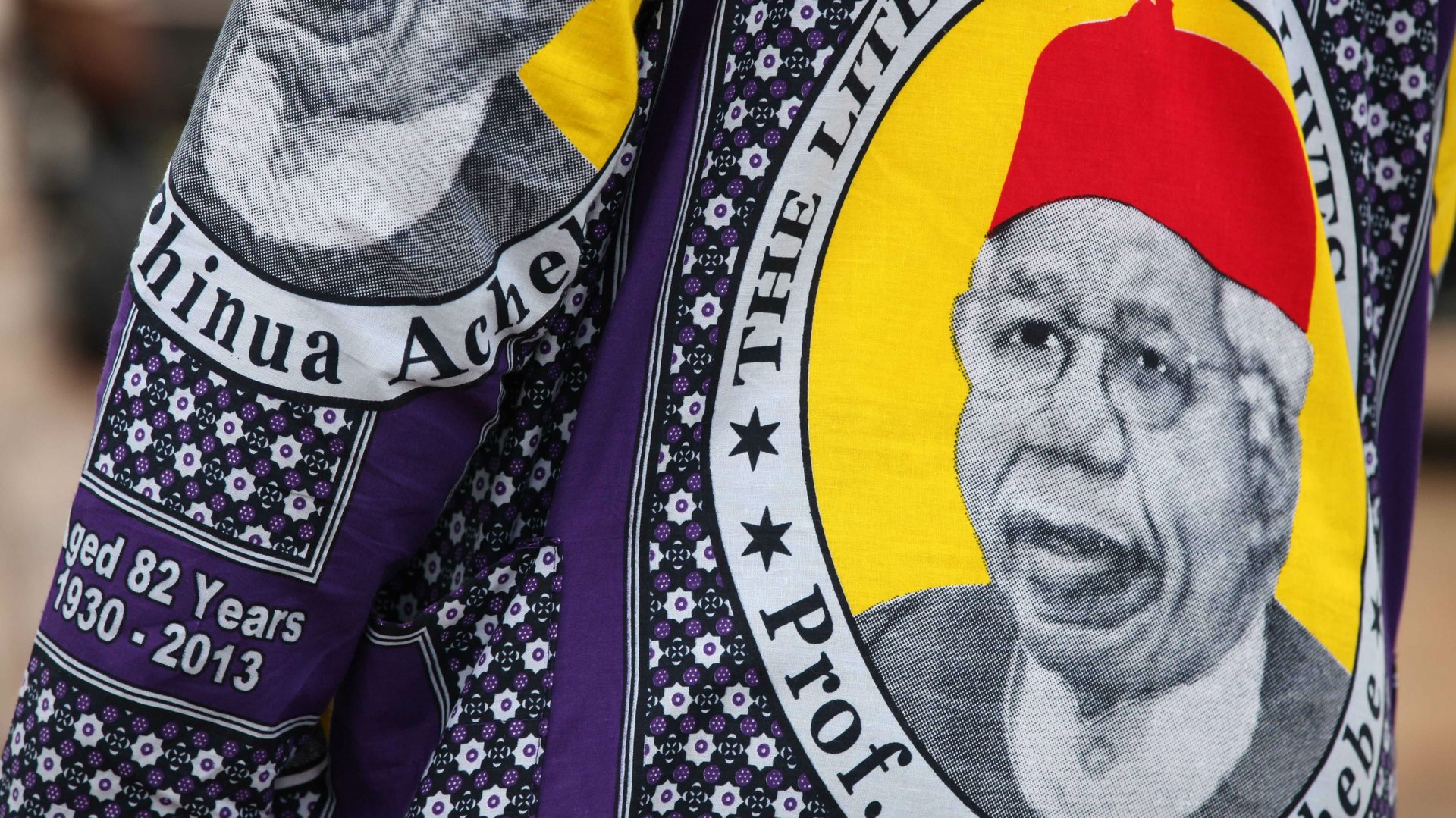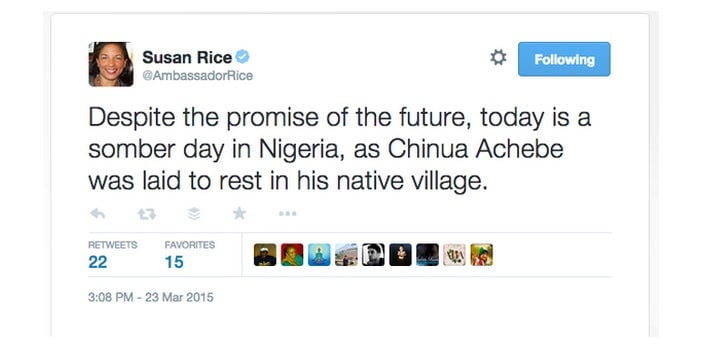What we can learn from the tragicomic affair of Chinua Achebe’s Twitter “re-death”
What a loss for African literature—and literature tout court—that Nigerian Man Booker prize winner and author of Things Fall Apart. An undisputed titan—such was the consensus on Twitter, where hordes of his fans took to mourn the passing of a writer who had deeply influenced them and, undoubtedly, their understanding of Africa.


What a loss for African literature—and literature tout court—that Nigerian Man Booker prize winner and author of Things Fall Apart. An undisputed titan—such was the consensus on Twitter, where hordes of his fans took to mourn the passing of a writer who had deeply influenced them and, undoubtedly, their understanding of Africa.
National security advisor Susan Rice, while sharing her strong hope for the future of Nigeria, conceded that today would be a sad day as the writer’s body arrived to his native village to be buried.

This surprisingly seems to have happened two years after Achebe’s death—but don’t we all know Africa’s ancient burial rituals are really complex? Perhaps there was some mummifying involved? Or a two-year long procession on foot? (That was sarcasm, in case you were wondering.)
Truth is, somehow yesterday morning, the Mar. 22, 2013 New York Times obituary for Achebe was resurrected on social media—and so was the writer, but only to die again so he could be mourned live on Twitter (and, to a lesser extent, on Facebook).
Let’s be honest: most of those writing insightful commentaries on the meaning of social media “remourning” could easily have committed this or a similar funny mistake, as it’s the social media result of three essentially harmless, but pretentious, instincts of ours.
1. Oh, how I loved James Joyce’s Ulysses
Raise your hand if you’ve never lied about having read something. Perhaps there are people who don’t pretend to have read books everyone has read. Perhaps they aren’t embarrassed by their shortcomings or, indeed have read them all. But the majority of well-read people like to paint themselves just a tad better read than they are. Why is that À la Recherce du Temps Perdu (or replace with equivalent masterpiece) sitting thick and pretty on so many bookshelves in all its unopened, page-long-periods glory? Because the owners have pretended they had read it for so long they can’t even remember whether they actually did.
2. I respect other cultures, too
Achebe was Africa’s best-known writer. Things Fall Apart, his most successful book, sold 10 million copies worldwide, and is a required reading in many high schools and colleges, the New York Times reported in 2007, offering a brilliant description of the novel as:
a kind of multicultural version of To Kill a Mockingbird.
You know, just like the American book about racism—only, more exotic.
Whether or not the people who mourned Achebe had read the book is almost irrelevant. Their tweet—like most shares on social media—were marks of their identity. They had heard his name and knew he was “someone”—as in, someone good and someone important. Just like the pretend reading habits, people want to show the world that they know and care. Even when they don’t—or not really. It’s safe to assume that most of the people wishing him to rest in peace—today, as they might have done two years ago—know about Achebe, have read at least one of his books, and just want to show the world that they truly respect and value other cultures.
3. We know nothing about Africa
Name ten African novelists. Ten African artists? Ten african visionary businesspeople. OK, try with five.
Truth is, we know way too little about Africa, particularly when it comes to the modern arts and literature from the 55 countries on the continent. And we would like to show that’s not the case and not appear to judge it by the book covers. After deleting her embarrassing tweet, Rice sent another:
Perhaps she is onto something. All the well-meaning (let’s not forget, this is an kind of an excess of good intention) people who have been sharing their grief for Achebe’s passing should perhaps truly read some other African literature this year. In fact, here are your five names.
Chimamanda Ngozi Adichie (Nigeria)
NoViolet Bulawayo (Zimbabwe)
Dinaw Mengestu (Ethiopia)
Binyavanga Wainaina (Kenya)
Helon Habila (Nigeria)